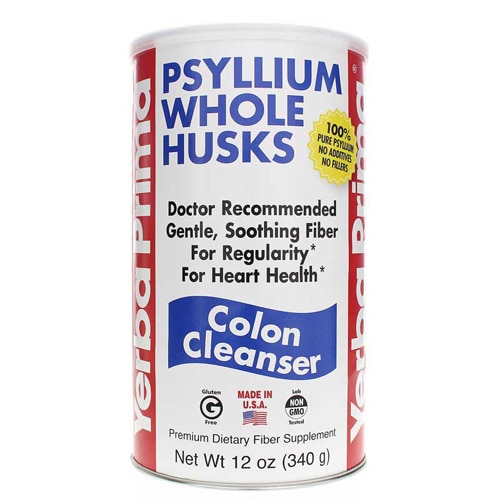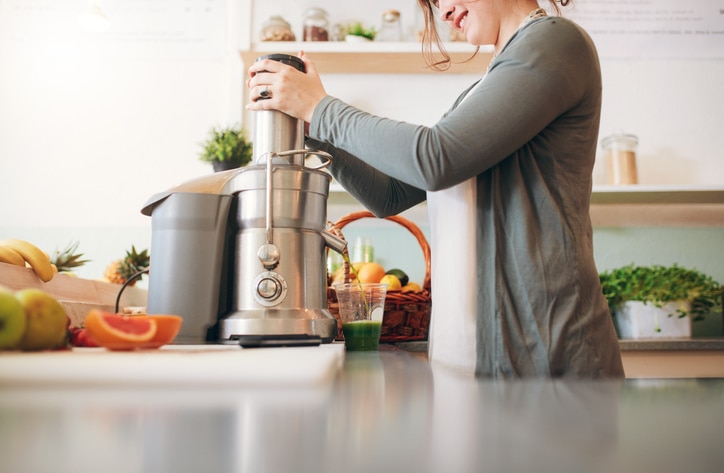Cleanses can be a huge boon for your brain and body. Whether you choose to substitute solid meals with vitamin-rich juices or opt for an elimination diet that shuns gluten and sugar, learning how to detox your body can help recharge your energy, promote clearer thinking, elevate mood, enhance liver function and boost digestion.
But detoxes—which, let’s face it, can be a bit daunting if we don’t have the right knowledge and mindset—may lead to failure if you fall prey to some of the common errors found in cleansing.
Here are 5 mistakes not to make when you’re doing a detox cleanse:
1. Relying on laxatives
Colon cleanses have long been a top choice for those who hope to drop a size in the nick of time—as well as for those who are keen on cleaning out their intestines.
But be forewarned. Laxatives—whether lubricant, saline or comprised of a bulk-forming product—do not provide sustainable weight loss and may lead to a number of health hazards.
Chief among them? Dehydration. Laxatives deplete your body of water and can result in life-threatening electrolyte imbalances. What’s more, laxatives might cause bowel perforation—it’s as agonizing as it sounds—and are particularly perilous for people with heart or kidney problems. Laxatives can also become addictive: they can worsen constipation as the digestive tract loses its ability to operate normally.
A saner, safer and more enduring approach? Eating a diet rich in fiber, exercising regularly and drinking lots of water. It might not seem trendy, but it works. Who wants to spend the dazzling new year running to the bathroom, anyway?
2. Not consuming adequate nutrients and calories
Rushing into a detox program and attempting too much too soon—such as drastically downsizing your intake and eating zero protein—may leave you feeling moody, deprived and prone to splurging.
Why? Fasting and/or not taking in sufficient calories almost always leaves dieters famished, fatigued…and, well, feeling a little crazy.
“Calories fuel the tissues of your body like your brain, heart, liver and kidneys,” explains Dr. Rachele Pojednic, a professor at Harvard Extension School. Consume too few—and not receive proper nourishment—and your mind and body will suffer. (#hangry has become ubiquitous for a reason.) What’s more, when you refuse sustenance and the key nutrients it supplies, you put yourself at risk of giving into temptation and overindulging, thereby potentially setting yourself on a path of yo-yo dieting that can be treacherous.
Rather than prioritizing caloric intake as an essential part of your detox program, focus instead on nurturing yourself well. You’ll feel the difference and will have the gusto and energy you need to stay committed to your cleanse.
Most important of all? That you approach detox from a place of self-love, not as a form of punishment. This should be reflected in the nourishment you put into your body—not in what you deny giving it.
3. Detoxing only your body
Detoxes present an excellent opportunity to adjust more than your sugar consumption. There are a number of things that comprise your quality of life, and diet alone won’t accomplish physical, mental and emotional prosperity. In fact, the genuine benefits of detoxing are discovered only in examining every major area of your life—and removing what’s necessary.
Consider, for example, your surroundings. Some of the pollutants you hope to eradicate from your tissues may come from consumer products you’re exposed to in your own household.
The solution? Finding natural alternatives for as many items as you can that may release toxic chemicals in or around your home—including cleaning products, cookware, personal-care products, food-storage containers and more. Replace your Teflon pans (which have been linked to cancer) with stainless-steel and cast-iron cookware, scrutinize all those chemicals in your personal-care products (be especially careful of sulfates and parabens), switch to BPA-free containers, avoid dry-cleaning and swap your chemical-laden products for organic substitutes (vinegar, baking soda, lemon juice, castile soap, borax and salt are all smart options).
And don’t forget to decontaminate your personal life: that friend or social obligation that brings you more anguish than elation might be as toxic for you as artificial sweetener and palm oil.
4. Eating dairy and egg products
You may love cream in your coffee, garden frittatas, chocolate and cheese (who doesn’t?). But for a successful cleanse, endeavor to avoid dairy and egg products entirely.
Sound impossible…or imprudent? Think again. Cows and other animals remove toxins from their bodies, in part, by excreting milk—so when you consume dairy products, you may subject yourself to increased toxins that can hamper your health and undo your hard work. Dairy products can also be particularly high in allergens; many people have low-grade allergies to both without realizing it. Eliminating them during your detox gives your digestive system a break from potentially unhealthful symptoms—and will allow you to determine if you need to eschew them for perpetuity.
5. Not sweating it out
Addressing your diet without tackling your physical activity is akin to spring-cleaning your house but keeping all of the windows closed.
Exercise, particularly aerobic, is an indispensable part of all effective detoxes—and a vital component of holistic health. It increases the blood flowing through your body (including your liver), releases toxins through perspiration and encourages detoxification by bringing more oxygen to your tissues. At the same time, exercise improves the circulation of your lymphatic fluids, which assists in the removal of pollutants and bacteria, while also bolstering happiness, energy and self-empowerment. Exercise also inspires a closer, more loving relationship with your body. Because while cleanses and resolutions may come and go, your body is yours for life—and what a wonderful existence you’ll have if you take care of it.




